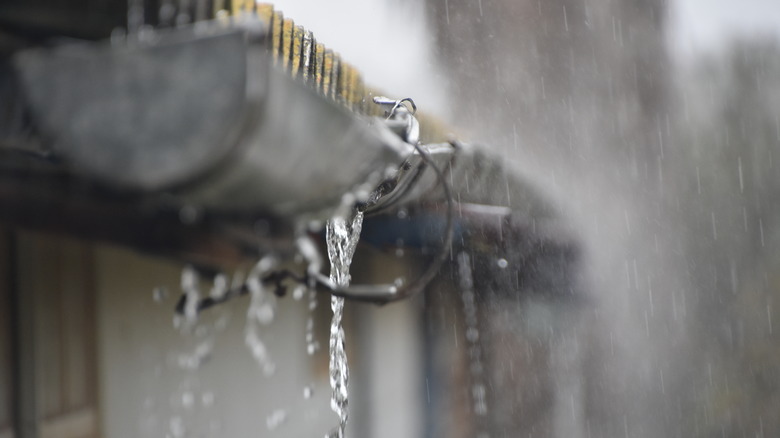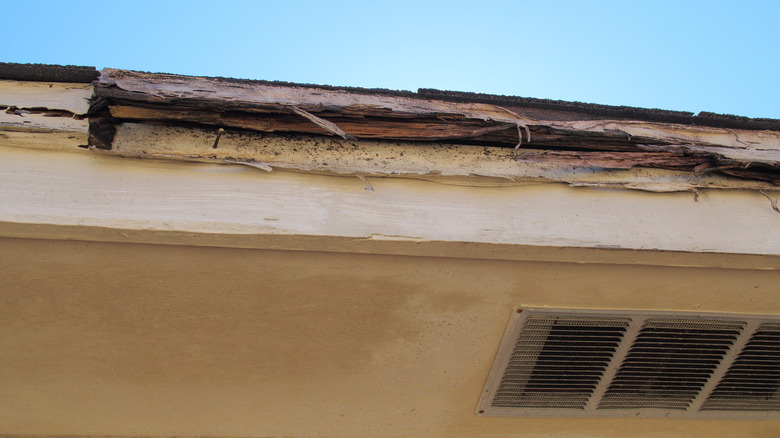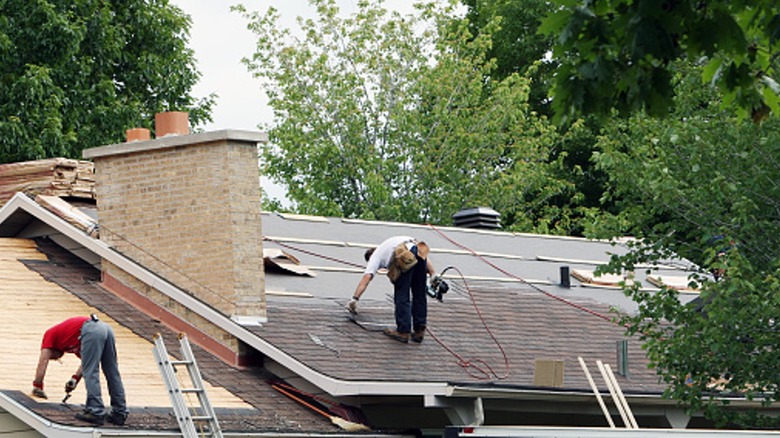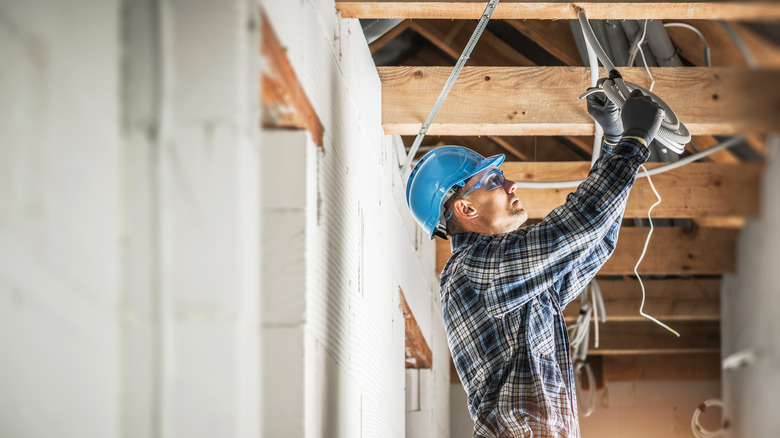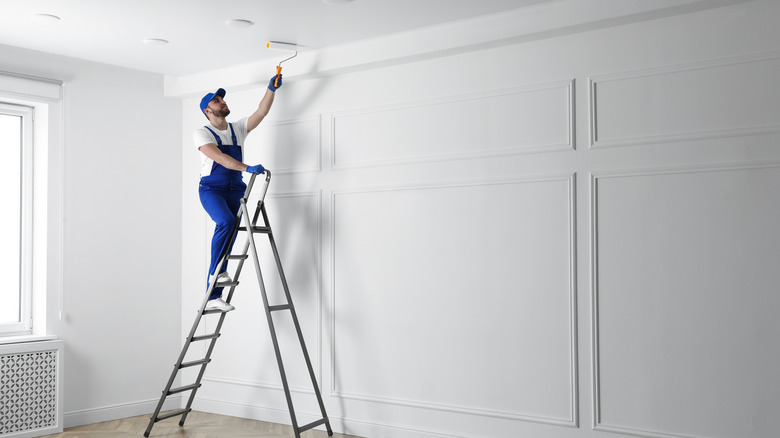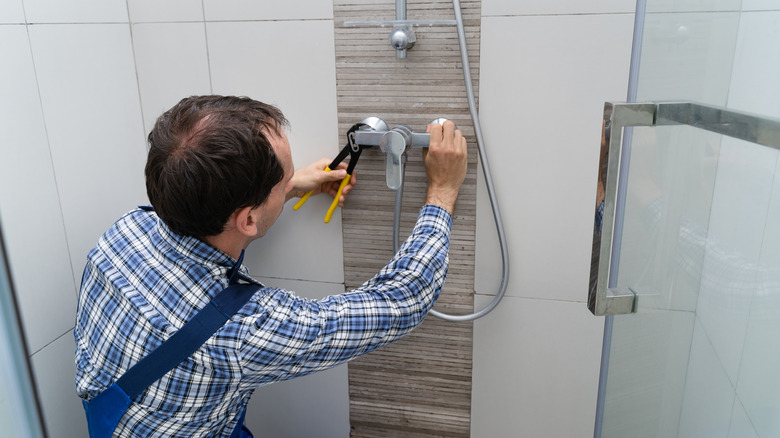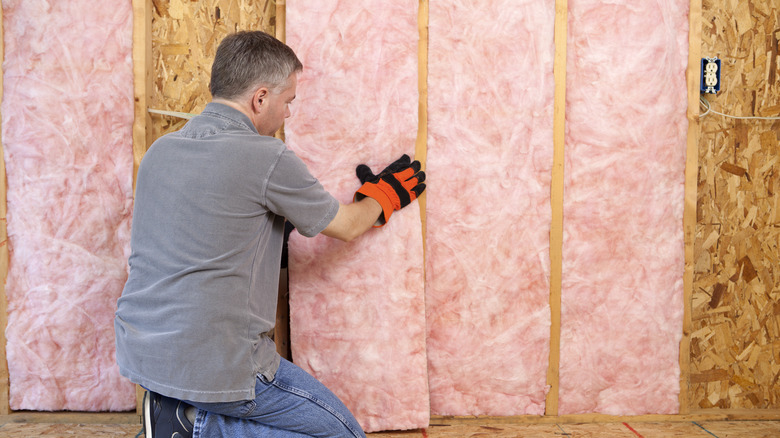Contractors Tell Us The Home Improvements You Shouldn't Cheap Out On
Finding DIY solutions to problems around the house or hiring someone who can help you make improvements without breaking the bank is appealing. After all, who wants to spend more money than is actually necessary to get the job done? However, while taking the cheaper route for some products can be a wise financial decision, there are several home improvement tasks that you don't want to cheap out on.
We interviewed electricians, painters, handymen, lawn care experts, and other contractors who shared with us the potential perils associated with skimping on certain repairs and home improvements. While you may think you're saving money by opting for a DIY solution or hiring someone who doesn't hold the proper certifications or qualifications for the task, you could end up creating a major safety hazard or a bigger problem that will cost even more to fix. Don't fall victim to these mistakes; read on to learn more about the home improvement tasks that are best left to the pros.
Gutter systems
If you've been putting off replacing your damaged or leaking gutters, now may be the time to schedule a consultation with a local expert. According to the experts we interviewed at Groundworks, one of the most important things homeowners should do is to "ensure there's an adequate gutter system in place and that it's free of clogs to help divert water away from the foundation to help prevent future leaking/water damage." Gutters may seem like such a basic component of your home that it is easy to overlook their importance.
However, if they are leaking or clogged, it can spell real trouble. If the water leaks down the sides of the home, instead of flowing through the gutters and downspouts as it should, it may start seeping through the walls or foundation. Leaking water can also damage your siding. If the gutters aren't flowing properly, water is also more likely to collect on the roof, which can lead to leaks and the need for costly repairs or even a full replacement. Instead of risking these potential problems, hire a professional to address any leaks you notice rather than doing it yourself. You should also consider getting gutters made out of better materials and by trusted brands, since cutting corners here can spell disaster down the road.
Appliances and fixtures
Andre Kazimierski, the CEO of Improovy Painters Naperville, shares with us that he believes that investing in high-quality appliances and fixtures is something homeowners should do. If you've ever shopped for a new washer, dryer, dishwasher, refrigerator, or fixtures for a shower or sink, then you know the wide range of options and prices on the market. However, according to Kazimierski, "anything that impacts your quality of life and the day-to-day efficiency of your household" should not be bought budget. "I would 100% of the time rather cheap out on flooring or more aesthetic touches versus something that has such a huge effect on my comfort and convenience!" he said.
If you're worried about whether spending more money on these appliances or fixtures is really worth it, keep in mind that because of their higher-quality design and construction, they are likely to last longer than their cheaper counterparts. As Kazimierski explains, "While these fixtures might be more expensive upfront for a high-quality piece, you will save money in replacements down the line."
Anything related to wood
The fastest way to rack up a bill in the future is to scrimp on structural projects. "I would most recommend not cutting corners on anything structural, or that is exposed to the elements. This can include things like exterior paint or even something like adding a porch or patio," shares Dan Bailey, President of WikiLawn. Rain, snow, ice, UV light, wind, and other elements have the potential to cause serious damage to the structural elements of your home.
"I have seen homes and other outdoor structures suffer pretty considerable damage from pests, water, and mold as a result of improperly or cheaply sealed, treated, or painted wood." It just isn't worth saving a few bucks upfront to be faced with serious repairs and bills in the future. Find a reputable contractor who will use high-quality materials and properly complete the job to ensure that everything is finished and sealed as it should be to protect your home against damage from the elements.
Anything exterior
Unless you want to find yourself facing serious water damage and costly bills in the future, CEO of LawnStarter, Ryan Farley, advises that you should "never, ever skimp on your home's exterior." Shopping for deals is OK, but he shares that you shouldn't try to save even more money by making repairs to your home's roof, trim, or siding yourself or trusting such repairs to someone who isn't qualified for the job. Instead, always conduct thorough research to find someone qualified and with the appropriate certifications for the job.
According to Farley, the key reason to hire someone who really knows what they are doing and will use the appropriate materials comes down to avoiding water damage. He notes that "even a small, slow leak can turn into rotten fascia or structural damage over the course of five or 10 years. This will mean tens of thousands of dollars in repairs, on top of having to replace your exterior again." Tom Nolan, the Founder of AllStar Home, shares additional information about the importance of choosing quality siding materials. He says that "cheap siding can also expose your home to the elements, letting mold and termites penetrate your home, compromising your home's integrity. If you need to replace your siding, you'll be looking at a $10,000-15,000 price tag." However, fixing the damage from mold and termites can be more expensive, since you'll likely need cleaning crews to come in. "Mold abatements can cost thousands, and may need continued maintenance to make sure it's all gone," Nolan explained.
Electrical systems and wiring
The fastest way to regret cutting corners is to mess with your electrical system. "The electrical system of a home is like its nervous system. Proper wiring, quality materials, and expert installation are crucial for the safety and functionality of a house. When homeowners opt for inferior materials or hire unqualified individuals for the sake of saving, the risks escalate significantly," says Roman Smolevskiy, the Owner of A+ Construction & Remodeling. The potential safety hazards associated with poor wiring or electrical work are nothing to sneeze at; they can potentially cause life-changing damage. For example, as Smolevskiy shares, "Faulty wiring is a leading cause of residential fires. Inferior materials or improper installation can lead to short circuits and overheating." That's why you should only invest in quality materials, trusted brands, and not go with the lowest bidder.
Even if you're lucky enough to avert a major house fire, Smolevskiy says that there is also a risk of electrocution from systems that are not installed properly. Your appliances may even be damaged if the voltages aren't correct. In addition, if you want to fix the mistakes made by the unqualified individual who completed the job, you will be left with a bill that's more than you bargained for. "It is often necessary to cut into or tear down walls to get at and fix a faulty wiring job," he said.
Paint and finishes
Given the higher cost of some types of paint, it is understandable that you might want to choose less expensive options, especially if you'll be painting several rooms at the same time. However, Co-Owner and Product Manager of Bluegrass Foundation Repair, Jeremy Lesher, says that doing so would be a mistake. He explains that "using high-quality paint and finishes may cost more upfront, but they offer better durability and a more attractive finish."
On the other hand, if you opt for cheaper options, you'll quickly be able to notice the difference. According to Lesher, "Cheap paints and finishes can deteriorate quickly and require frequent repainting or refinishing." Not only won't they help your house look its best — which is really the goal when starting a major painting project — but you'll be forced to pay to have the work done again after just a few years. The paint won't "age" as well as high-quality options. Save yourself from making this costly mistake, and just invest a little more at the beginning of your project.
Bathroom renovation projects
Rick Berres, Owner of Honey-Doers, cautions against going with the cheapest bid when it comes to bathroom repairs. There is too much that can go wrong with all of the water in a bathroom. Berres shares a story of a homeowner whom his company had provided an estimate for in the past. She decided to hire the contractor who provided the cheapest bid for the project. "The contractor, instead of removing the old subfloor, screwed thin plywood right on top of it. They hadn't installed any sort of waterproofing system, water was leaking and pooling, and her new bathroom was ruined just a couple of months down the road."
Getting multiple bids for large home improvement projects is always a good idea. If one proposal seems significantly lower than the others, it is often a red flag. Berres says, "They aren't charging enough to do the job properly, so corners will be cut, and you will wind up with much bigger problems after they are long gone." Instead, take your time to research each company you're considering working with. Ask them questions about their process and the types of materials they'll use. Asking for references and consulting reviews from past customers can give you further assurance that they'll perform quality work.
Insulation
Trying to save yourself a few bucks by cheaping out when it comes to installing insulation is not a smart move. Walter E. Bennett, a handyman from Texas, shares why you don't want to cut corners when it comes to insulation in your home. "Proper insulation improves energy efficiency and indoor comfort. Inadequate insulation can lead to high energy bills, drafts, and discomfort." Your home's air conditioner or furnace will have to work harder to try to combat the hot or cold air that is seeping in or out of the house. Not only will you not be comfortable in your own home, but you'll end up paying more for heating and cooling.
If you have an older home with insulation that just isn't cutting it, Bennett recommends replacing it or adding more. While "reinsulating your home can range from a few hundred dollars for small areas to several thousand dollars for a complete home insulation upgrade," he explains that the "energy savings can offset this cost over time."

